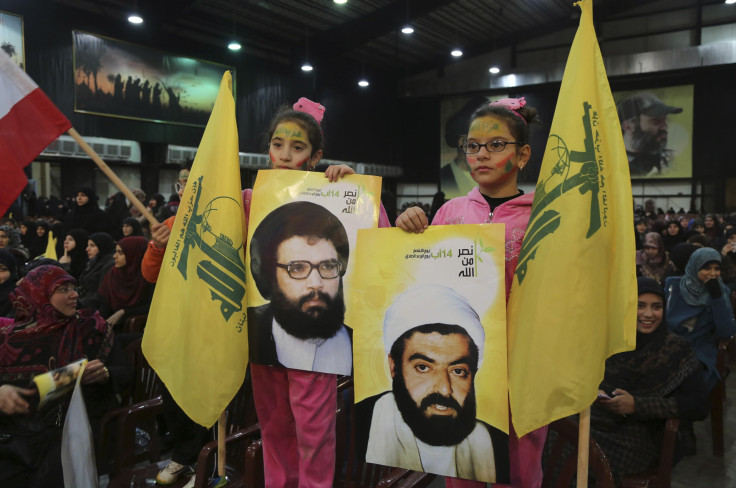Iran-Backed Hezbollah Pushes For 'Nonsectarian, Democratic' Lebanon To Defend Against Israel, Jihadist Groups

Lebanon’s Shiite organization Hezbollah, which means "Party of God" in Arabic, is making a push to enter the country’s mainstream political sphere by adopting a nonsectarian stance. The change in rhetoric signals the group’s desire to fill a power vacuum in Lebanon, as religious divides and a spillover of the Syrian civil war threaten to tear it apart.
The Lebanese army’s inability to defend the borders against infiltration by Syrian rebels, including the Islamic State group, is helping Hezbollah emerge as the only viable military defender of the country -- and the group, backed by Iran and a sworn enemy of Israel, is now hoping to transform that into a political win.
“In today's environment Hezbollah is doing all it can to play down its sectarian nature for domestic politics and stability at home -- even as its actions in the region … are tremendously sectarian,” said Matthew Levitt, director of the Stein Program on Counterterrorism and Intelligence at the Washington Institute for Near East Policy.
Hezbollah is funded, trained and controlled by Iran’s Shiite government and includes both a political party represented in Lebanon's parliament and an armed wing, and considered a terrorist organization by the European Union. The U.S. has put the entire organization, which has operations in dozens of nations, on its terrorist list.
Ali Fayyad, a Hezbollah member of parliament, said his party is ready to put aside its religious stance in the interest of defending all of Lebanon’s 18 religious sects and establishing a “nonsectarian, democratic state.”
“Although [Hezbollah] is a Muslim party we believe that all those fighting against imperialism, racism, discrimination, occupation and injustice, and those who are defending freedom -- wherever they are -- are our comrades, our partners and our brothers,” said Fayyad during a visit Monday to a former Israeli-run prison in southern Lebanon. “Hence, we stand on our national territory to defend this country and all the Lebanese people without distinguishing between Muslims and Christians or between Sunni and Druze.”
Hezbollah got involved in the Syrian civil war in 2013, in support of its sectarian kin, President Bashar Assad. Because of that war, the Lebanese-Syrian border is now highly vulnerable to militant infiltration, turning Lebanon into a host country for armed Sunni militants like al Qaeda and the Islamic State group or ISIS. The rising threat of Sunni jihadist groups on the border has already pushed some Lebanese minority militias in the Northern Bekaa Valley to accept Hezbollah's help.
Tensions have also risen between Hezbollah and Israel. Last month, a deadly attack on an Israeli military convoy prompted immediate retaliation, raising the possibility of a new conflict between the two. Fayyad juxtaposed his push for a unified Lebanon with a reiteration Hezbollah would have to defend itself against Israel. That may have been meant to reassure the base, and Iran, that Hezbollah is not concentrating on a domestic power play and losing focus on its "claimed prime enemy, which is the state of Israel," said Phillip Smyth, a University of Maryland researcher who studies Lebanon and Shiite militias.
© Copyright IBTimes 2024. All rights reserved.






















